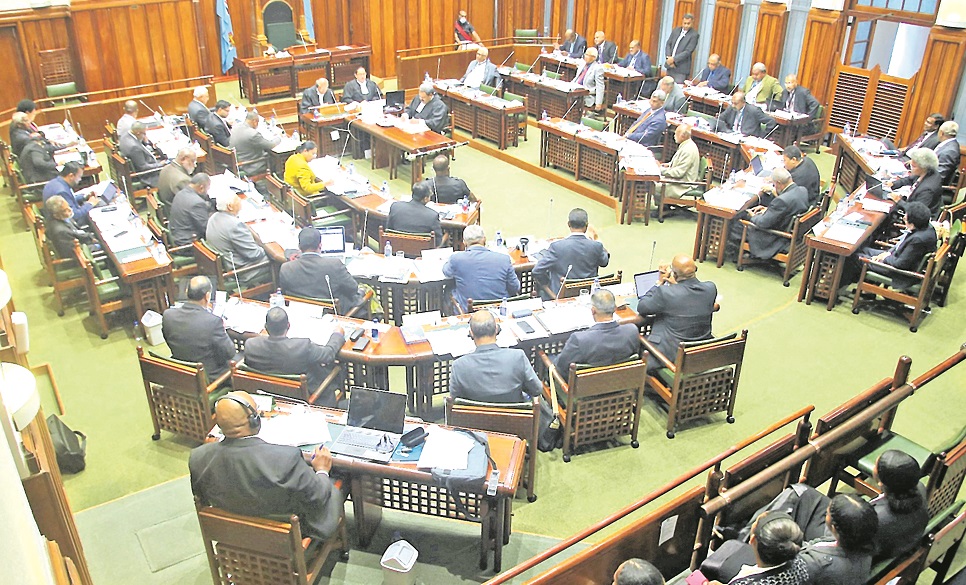Last week I gave a yarn on how all languages of the world were unique and special.
Apart from Hindi and Vosa Vakaviti, I touched on how unique the ‘language of apology’ and its associated etiquette were. An apology, therefore, I noted, should first and foremost, explicitly express genuine regret.
This deep feeling of remorse can be felt if one looks deep inside one’s heart, truly admits wrongdoing and becomes aware that someone or a group has been offended or hurt because of his or her action.
The true language of apology should also show that the offender has accepted full responsibility for his or her action.
This means we cannot just concede we are wrong when apologising. We must also accept responsibility for it too. Also, there should be an inward feeling of genuine repentance in the wrongdoer and he or she should demonstrate a willingness to change or refrain in future.
Finally, the language of apology requires the wrong doer to honestly ask, or plead, for forgiveness. That is, an apology offered can only be genuine when the wronged person or party is the one who asks for forgiveness.
This week’s public apology by the Opposition and FijiFirst party leader, Voreqe Bainimarama, was way off the mark. He was told to apologise to the President within 14 days and to the people of Fiji, within 48 hours.
Mr Bainimarama was suspended for three years and is not allowed to enter the parliamentary precincts.
The pronouncement by Parliament was made because he had criticised the President Ratu Wiliame Katonivere for failing the Fijian people and to uphold the Constitution during his maiden speech last Monday.
At the very least, Mr Bainimarama should have been physically present in his seat, in the House, when Parliament deliberated on issues related to his suspension last week. He should have been the one to beg for his own forgiveness and he should have exhibited remorse when begging for it.
On Monday night, the former PM, in a statement on social media, said he was sorry. If one thing, his apology lacked regret and repentance. If you skim through his statement to find a single clue of repentance or remorse, you are most likely to not find anything that will touch you.
Here is what Mr Bainimarama said was his public apology: “One of the conditions imposed by the Parliament in relation to my suspension from Parliament is that I apologise to the Fijian public. It is in this context that I apologise to the Fijian public. Thank you.”
One would have thought that, as a former PM, he’d appear on television, radio or pay for a full paid advert in a newspaper.
Out of all places, he posted one of the most hollow and insincere public apologies one could ever offer, on Facebook.
If one thing, Mr Bainimarama continues to demonstrate his capacity as a leader and his unwillingness to cooperate, conform and comply.
The language he used lacked feeling and his words sounded empty. PM Sitiveni Rabuka in a public message on Monday night said there seemed to be no regret or even an iota of admission of guilt in Mr Bainimarama’s public apology.
Is he capable of offering a bona fide and legitimate apology? I am sure he is capable.
He has done it in the past, using courteous and sympathetic words that reflected the high office he held. In 2010 for instance, he apologised to the people of Namosi on behalf of Government for the slow rate of development in the province.
“We (Government) seek your forgiveness if government services have been slow in reaching you,” the Prime Minister said in a conversation with people of Namosi, who had visited the Queen Elizabeth Barracks.
“We also would like to seek your patience if government services have not been to your expectations.”
Mr Bainimarama’s seemed empty and incomplete. This means he went through the motions, and literally uttered a few words but not meaning it or edging towards sounding genuine but did not quite hit the mark. Let’s face it, apologising isn’t easy.
Many people do it partially, some do it dishonestly and others don’t do it at all. But regardless of how difficult it is to admit our mistakes, apologies – wherever and whenever it is required, are essential for repairing relationships, creating harmony and moving on to a united future.
Let’s hope that in the future our leaders will easily find in their heart the willingness to express true regret, accept responsibility admit, have genuine repentance and seek forgiveness when things go wrong.
Our ability to progress depends on it. Until we meet on this same page same time next week, stay blessed, stay healthy and stay safe.



